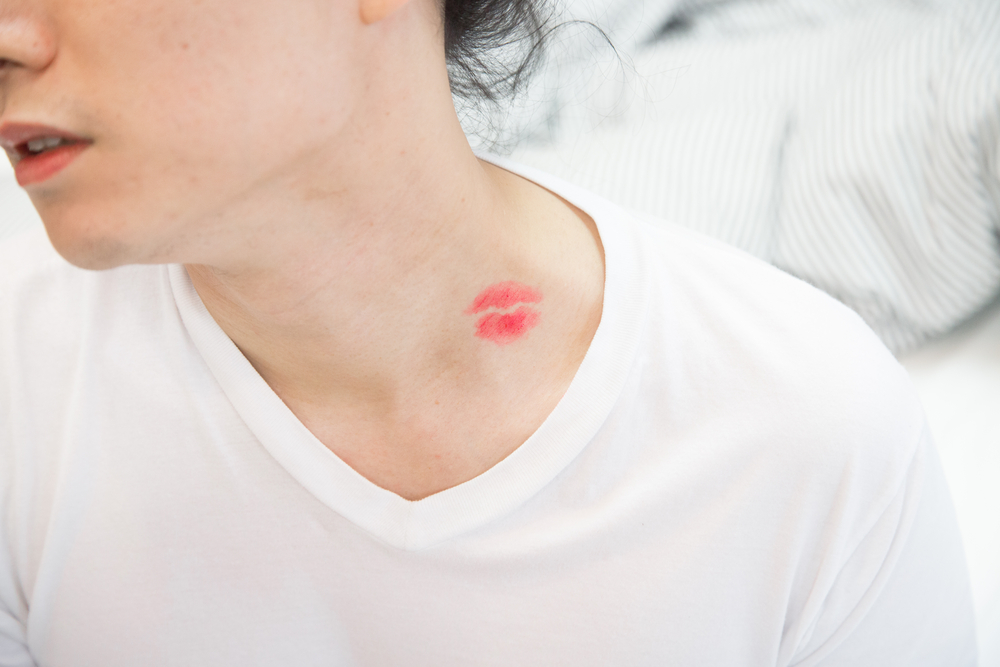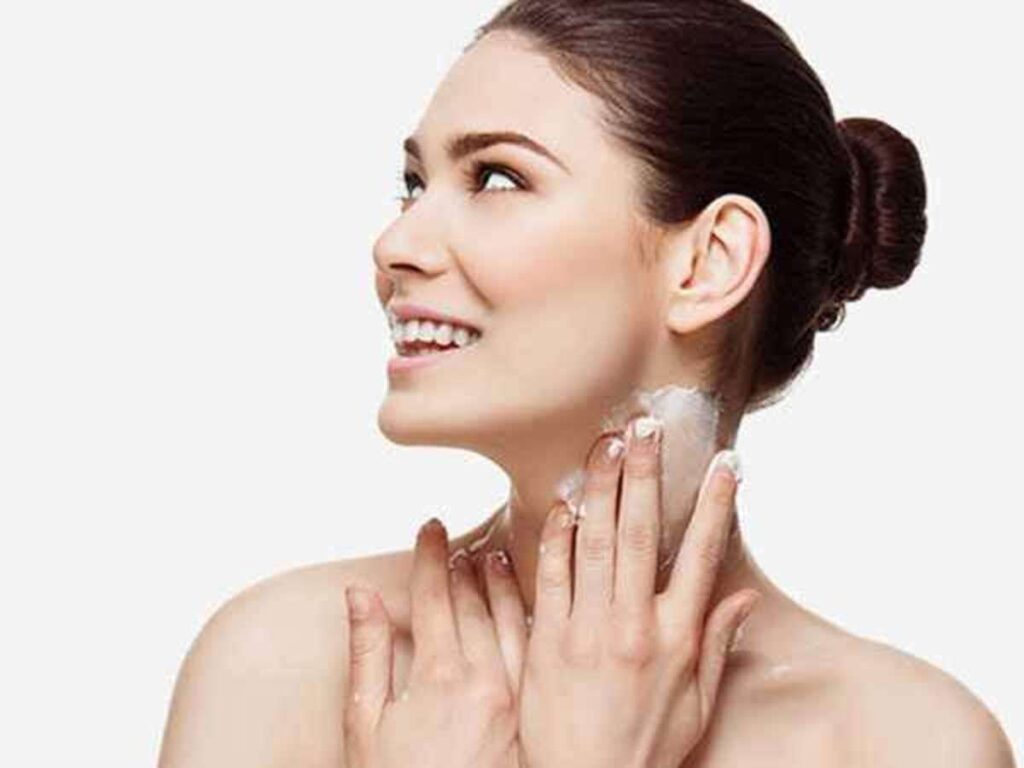Can Hickeys Give You Cancer? Separating Myth From Reality
Hey there, curious mind! Let's dive into something that’s been buzzing around in conversations, memes, and even some scary whispers—can hickeys actually give you cancer? Now, before you start panicking about that little love bite or questioning your relationship with your partner, let me assure you, we’re here to uncover the truth. In this article, we’ll explore the science behind hickeys, their potential risks, and why you shouldn’t lose sleep over them unless, well, there’s more going on than just a hickey.
Let’s get real for a second. Hickeys are basically love marks, right? A gentle (or not-so-gentle) reminder of an intimate moment. But somewhere along the way, someone started spreading the idea that hickeys could somehow lead to cancer. Spoiler alert: they don’t. But to fully understand why, we need to break down the biology, the myths, and the facts. So, buckle up, because we’re about to debunk this rumor once and for all.
And hey, if you’re reading this, you’re probably looking for answers. Maybe you’ve heard something alarming, or maybe you’re just curious. Either way, you’re in the right place. We’ll cover everything from the science of hickeys to the importance of skin health, so you can walk away feeling informed—and hopefully, a little less worried.
Read also:Vance Baldwin The Rising Star In The World Of Entertainment
Table of Contents:
- What Is a Hickey?
- Can Hickeys Cause Cancer?
- Understanding Skin Health
- Debunking Common Myths
- Symptoms to Watch For
- Prevention Tips for Skin Health
- When Should You See a Doctor?
- Factors That Can Cause Cancer
- Skin Cancer Awareness
- Final Thoughts
What Is a Hickey, Anyway?
Alright, first things first—let’s break down what a hickey actually is. A hickey is essentially a bruise caused by suction on the skin. When someone gives you a hickey, they’re applying enough pressure with their mouth to rupture tiny blood vessels just beneath the surface of your skin. The result? That purplish-red mark that can linger for a few days. It’s not exactly rocket science, but it’s definitely a reminder of some fun times—or maybe just an awkward middle school memory.
How Do Hickeys Form?
Here’s the deal: when someone sucks on your skin, they’re causing tiny capillaries (those small blood vessels) to break. This leads to blood leaking into the surrounding tissue, which creates that signature bruise-like appearance. And while it might look dramatic, it’s really not all that different from any other bruise you might get from bumping into something. So, no, hickeys aren’t some mysterious force that can harm your body—they’re just a temporary mark.
Can Hickeys Cause Cancer?
Now, here’s the million-dollar question: can hickeys give you cancer? Spoiler alert—no, they can’t. There’s absolutely no scientific evidence linking hickeys to cancer. Zero. Nada. Zilch. The idea that a little love bite could somehow lead to something as serious as cancer is purely a myth, and it’s one that needs to be put to rest.
Why the Confusion?
So, how did this myth even start? Well, it probably has to do with the fact that some skin conditions, like melanoma or other forms of skin cancer, can look like strange marks on the skin. But here’s the thing—a hickey is temporary, and it heals on its own. Skin cancer, on the other hand, doesn’t just go away. It’s a persistent, growing issue that requires medical attention. So, if you see something unusual on your skin, don’t panic—but do get it checked out by a professional.
Understanding Skin Health
While we’re on the topic of skin, let’s take a moment to talk about overall skin health. Your skin is your body’s largest organ, and it plays a crucial role in protecting you from the outside world. Keeping it healthy is important, not just for aesthetic reasons, but for your overall well-being.
Read also:Melanie Griffith And Antonio Banderas A Love Story Through The Lens Of Hollywood
Here are a few key things to keep in mind:
- Protect your skin from UV rays by wearing sunscreen.
- Stay hydrated and eat a balanced diet to promote healthy skin.
- Regularly check your skin for any unusual changes, like moles or discolorations.
Debunking Common Myths
There are a lot of myths out there about skin health and cancer, and it’s time to set the record straight. Here are a few of the most common ones:
Myth #1: Hickeys Can Cause Cancer
We’ve already covered this one, but it’s worth repeating. Hickeys are temporary bruises, and they don’t have any connection to cancer. Period.
Myth #2: Tanning Beds Are Safe
This one’s a big no-no. Tanning beds expose your skin to harmful UV radiation, which can increase your risk of skin cancer. If you want a tan, stick to self-tanners or bronzing makeup.
Myth #3: Only Fair-Skinned People Need to Worry About Skin Cancer
Wrong again. While fair-skinned people are at a higher risk, anyone can develop skin cancer. Regardless of your skin tone, it’s important to protect yourself from the sun and monitor your skin for any changes.
Symptoms to Watch For
Now, let’s talk about what you should be on the lookout for when it comes to skin health. If you notice any of the following symptoms, it’s a good idea to consult a dermatologist:
- A mole or spot that changes in size, shape, or color.
- A sore that doesn’t heal.
- Redness or swelling beyond the border of a mole.
- Pain, itching, or tenderness in a specific area of skin.
Remember, early detection is key when it comes to skin cancer. The sooner you catch it, the better your chances of successful treatment.
Prevention Tips for Skin Health
Prevention is always better than cure, so here are a few tips to help you keep your skin healthy:
- Wear sunscreen every day, even when it’s cloudy.
- Stay out of the sun during peak hours (10 a.m. to 4 p.m.).
- Wear protective clothing, like hats and sunglasses.
- Perform regular skin checks and report anything unusual to your doctor.
When Should You See a Doctor?
If you notice anything unusual on your skin, it’s always a good idea to get it checked out. Don’t wait until it becomes a bigger issue. A dermatologist can examine your skin, perform tests if necessary, and provide guidance on how to keep your skin healthy.
Factors That Can Cause Cancer
While hickeys aren’t a cause for concern, there are other factors that can increase your risk of cancer. These include:
- Exposure to UV radiation from the sun or tanning beds.
- Smoking or exposure to secondhand smoke.
- A family history of cancer.
- Poor diet and lack of exercise.
By understanding these risk factors, you can take steps to reduce your chances of developing cancer.
Skin Cancer Awareness
Raising awareness about skin cancer is crucial. Many people don’t realize how common it is or how serious it can be. According to the American Cancer Society, skin cancer is the most common type of cancer in the United States. But the good news is that it’s also one of the most preventable.
Here are a few ways you can help spread awareness:
- Share information about skin cancer prevention with friends and family.
- Participate in or support skin cancer awareness events in your community.
- Encourage others to perform regular skin checks.
Final Thoughts
So, there you have it—the truth about hickeys and cancer. To recap: hickeys don’t cause cancer, but it’s always important to be aware of your skin health and any changes that might occur. Protecting your skin from harmful UV rays, eating a balanced diet, and staying hydrated are all key to maintaining good skin health.
And hey, if you’ve got a hickey, don’t sweat it. Just make sure it’s not something more serious, like a mole or lesion that’s been there for a while. If you’re ever unsure, consult a professional. After all, your health is worth it.
Now, it’s your turn! Leave a comment below and let me know what you think about this topic. Have you ever heard any wild myths about hickeys? Or maybe you’ve got a skin care routine you swear by? Share it with us—we’d love to hear from you!
Article Recommendations


